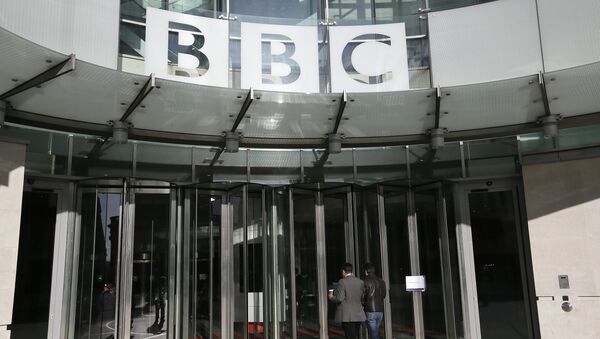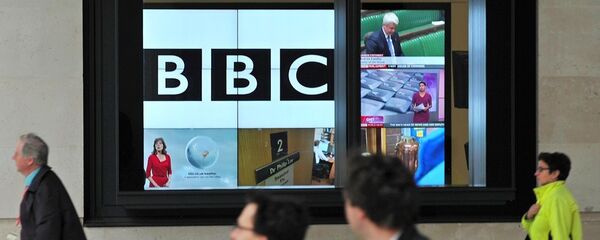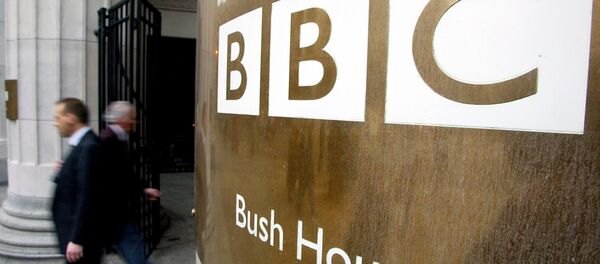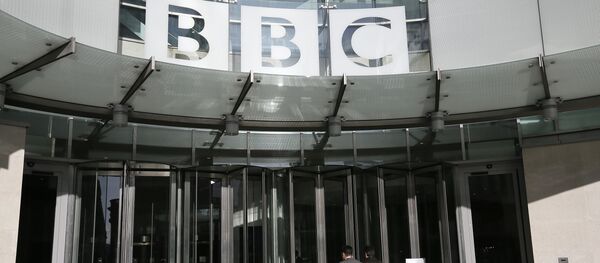More funds, no details
"In September last year [2015] the Government announced a funding boost for the BBC World Service to expand and enhance our international services, for the next three years. As part of this, we’re planning that some of this additional funding will enrich our existing offer in a number of countries including Russia; we’re still working on the detailed plans," a BBC World Service communications officer told Sputnik, asked whether the outlet had already received funds and how they had been used.
In November 2015, the UK government announced a funding boost for the BBC, which envisaged 34 million pounds ($44.3 million) for 2016-2017, followed by 85 million pounds a year or the next three years. It amounts to around a third of the BBC's current budget, according to the blog by Chair of BBC Global News Ltd Francesca Unsworth.
The UK government, asked by Sputnik how much money had already been allocated and how the funds had been used so far, avoided giving any details and only repeated vague independence assurances.
"The BBC World Service is independently developing proposals to enhance the service for its global audience. This includes expanding on its objective voice in the Russian language, which is consistent with the BBC World Service’s aim to provide independent, impartial and accurate news across the world," a Her Majesty Government spokesperson told Sputnik.
Forcing figures to fit case
However, the Defence Committee’s report on alleged threats coming from Russia was straightforward enough. "We are concerned that the UK and NATO do not yet have a fully-developed strategy to counter Russian propaganda and disinformation effectively," its paragraph 137 reads. It continues saying that NATO must substantially increase the level of resources which member states, including the United Kingdom, commit to fighting "Russian propaganda."
The Rossiya Segodnya international media group that includes Sputnik has a budget of approximately 6 billion rubles (about $93 million) after a 10-percent expenditure cut in all publicly-funded Russian entities. RT's budget for 2016 stands at 17 billion rubles (about $262 million).
Russian Foreign Ministry spokeswoman Maria Zakharova assumed, following the inquiry, that the UK authorities had been using the government report about the alleged information war against the United Kingdom by Sputnik news agency and RT broadcaster as a means to obtain additional budgetary resources for defense projects.
Information warfare
In continuation of the policy of countering so-called propaganda, the Atlantic Council, a think tank linked to NATO, issued a report in July "Arming for Deterrence: How Poland and NATO Should Counter a Resurgent Russia." It advised Poland to draw up a list of Russian targets, including RT broadcaster, for potential cyberattacks.
In August, The Times newspaper, based in the United Kingdom, made its contribution to the anti-Russian "information warfare." It published seven articles containing discrediting information about Russian media outlets, including Sputnik news agency and the RT broadcaster, in particular commenting on the opening of Sputnik's offices and Russkiy Mir Foundation in the United Kingdom, and the coverage of the downing of Malaysia Airlines flight MH17.
A number of Russian lawmakers from both chambers of the Russian parliament have said that The Times' articles were planned in advance as part of information war against Moscow.
Developing pluralism and objectivity in the media remains an official Russia’s priority. Speaking at the "New Era of Journalism: Farewell to Mainstream" forum in June, Russian President Vladimir Putin said "there can be no situations where certain authorities like certain information, protecting it and talking about press freedom, but when they don't like it, they dismiss it as propaganda serving the interests of some political groups or specific countries."
The Russian Foreign Ministry's Human Rights Ombudsman Konstantin Dolgov said at the same event that the Western public was being "brainwashed" by local media, and strove for an alternative news coverage.




